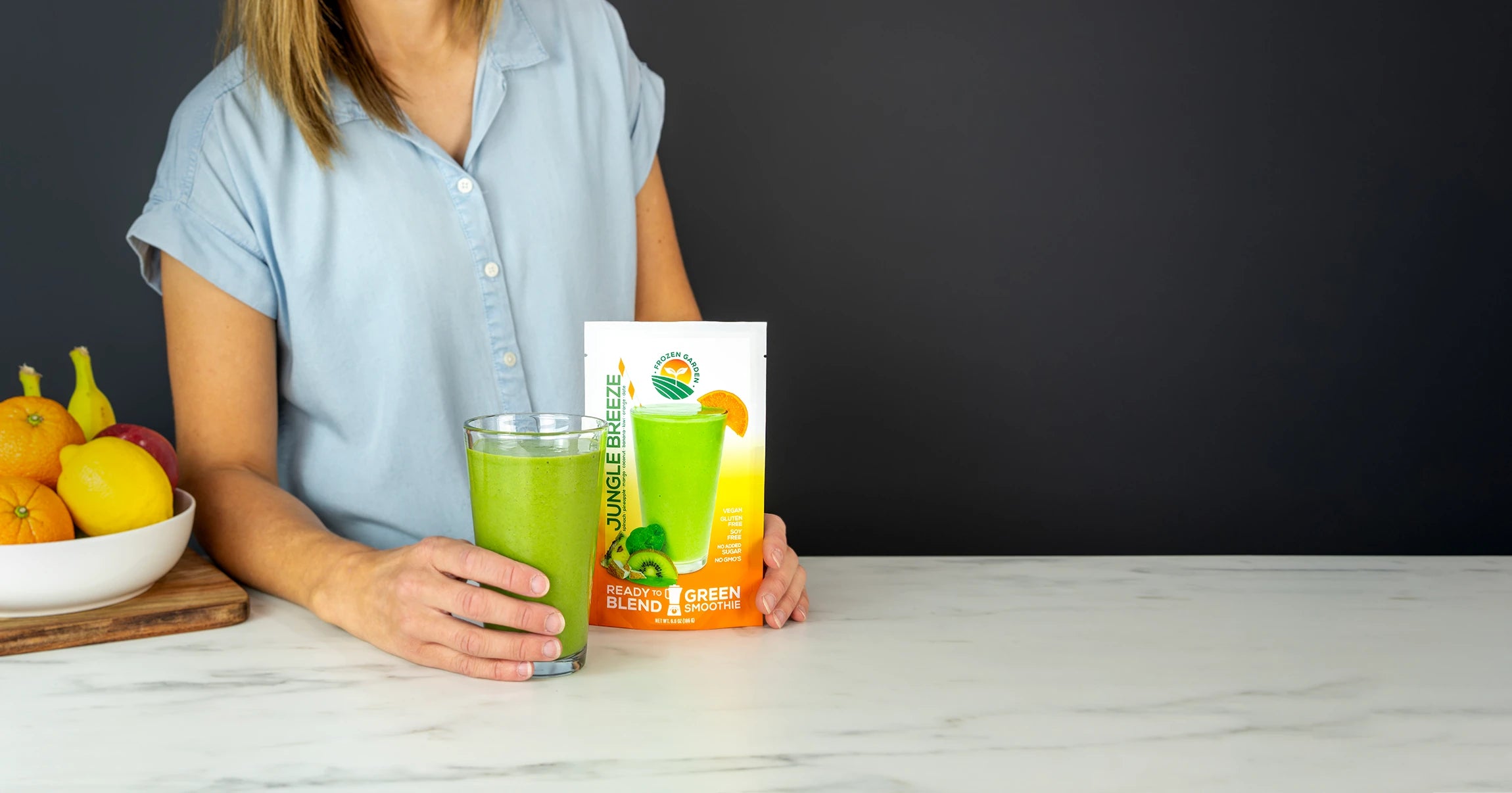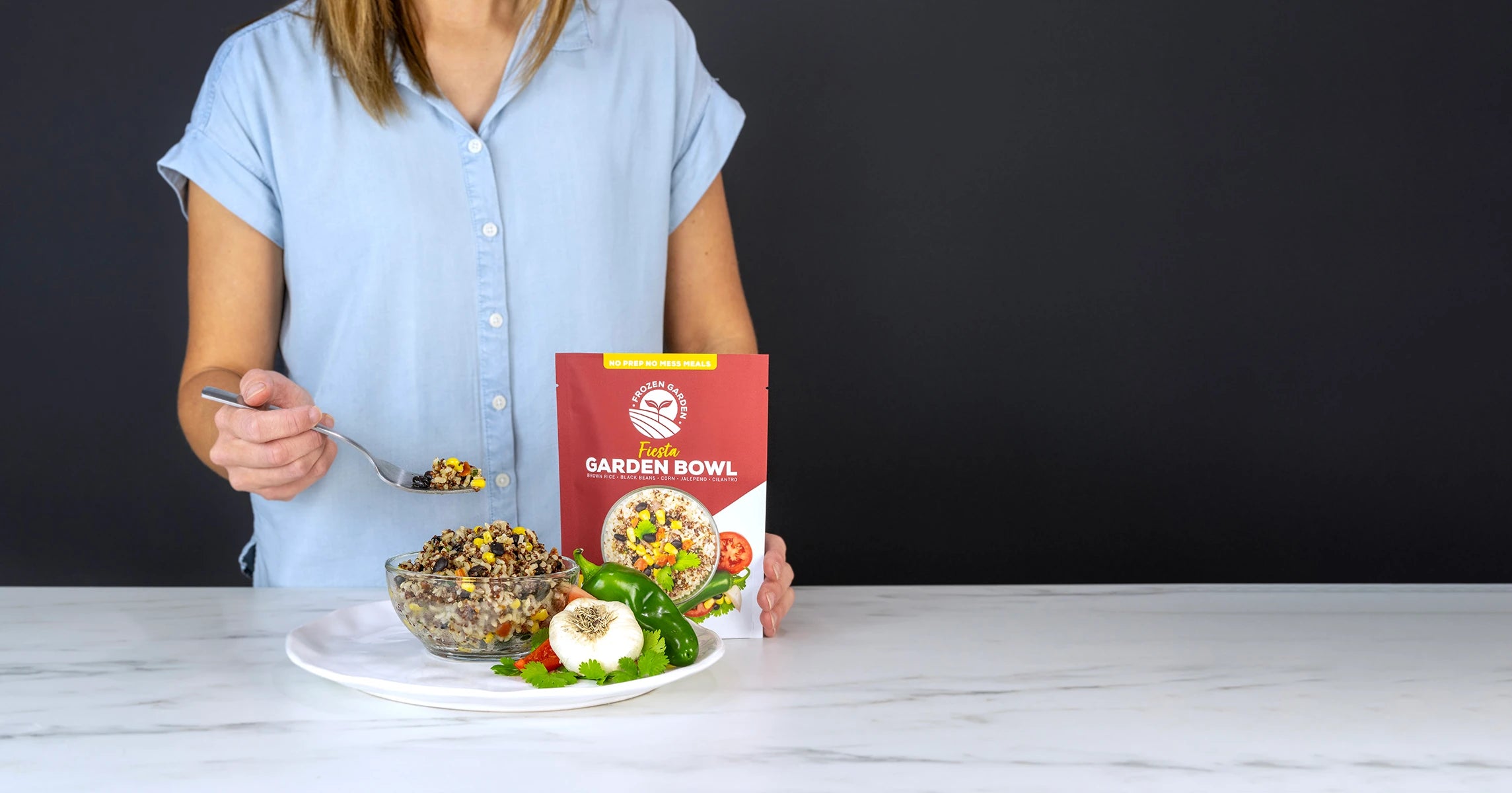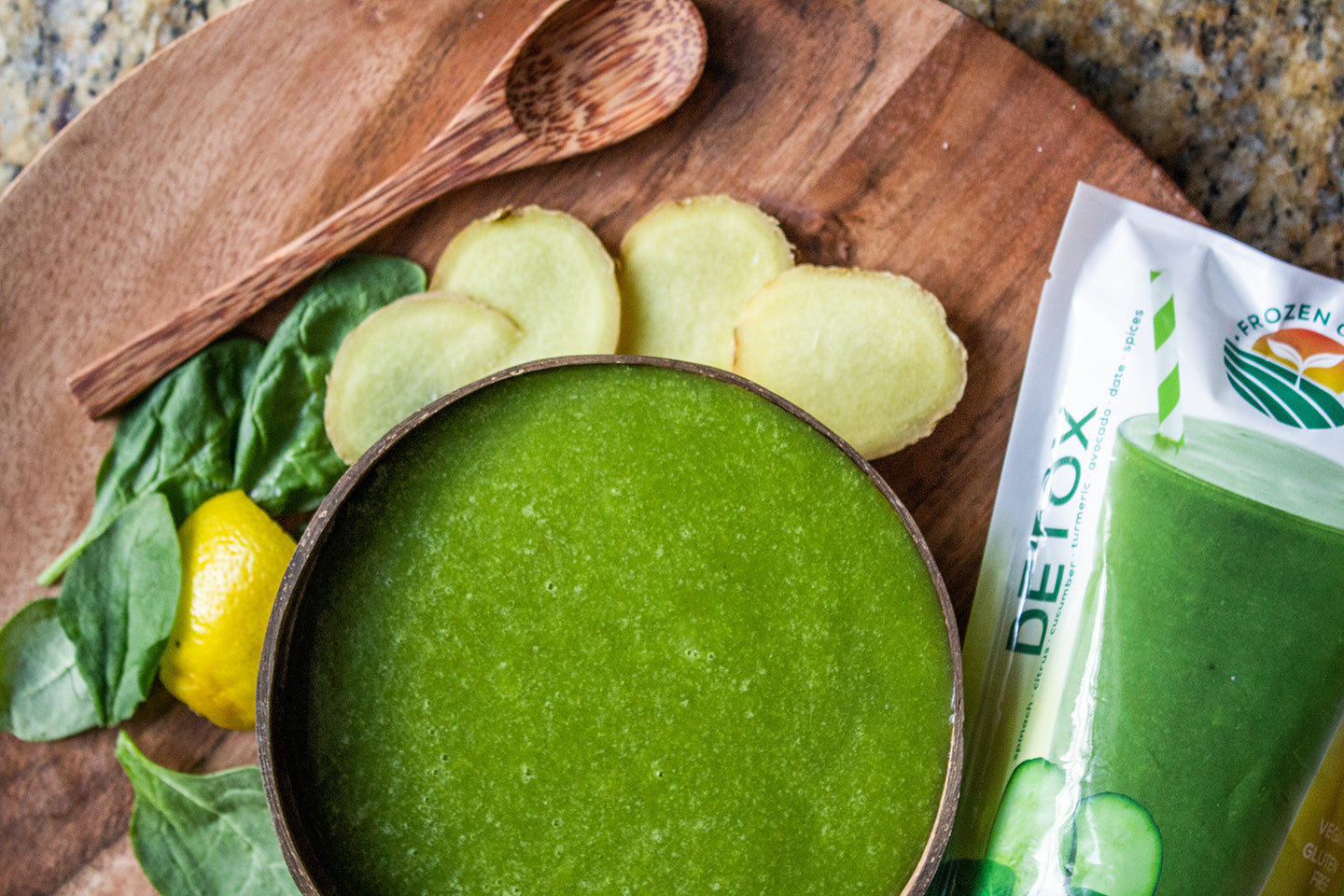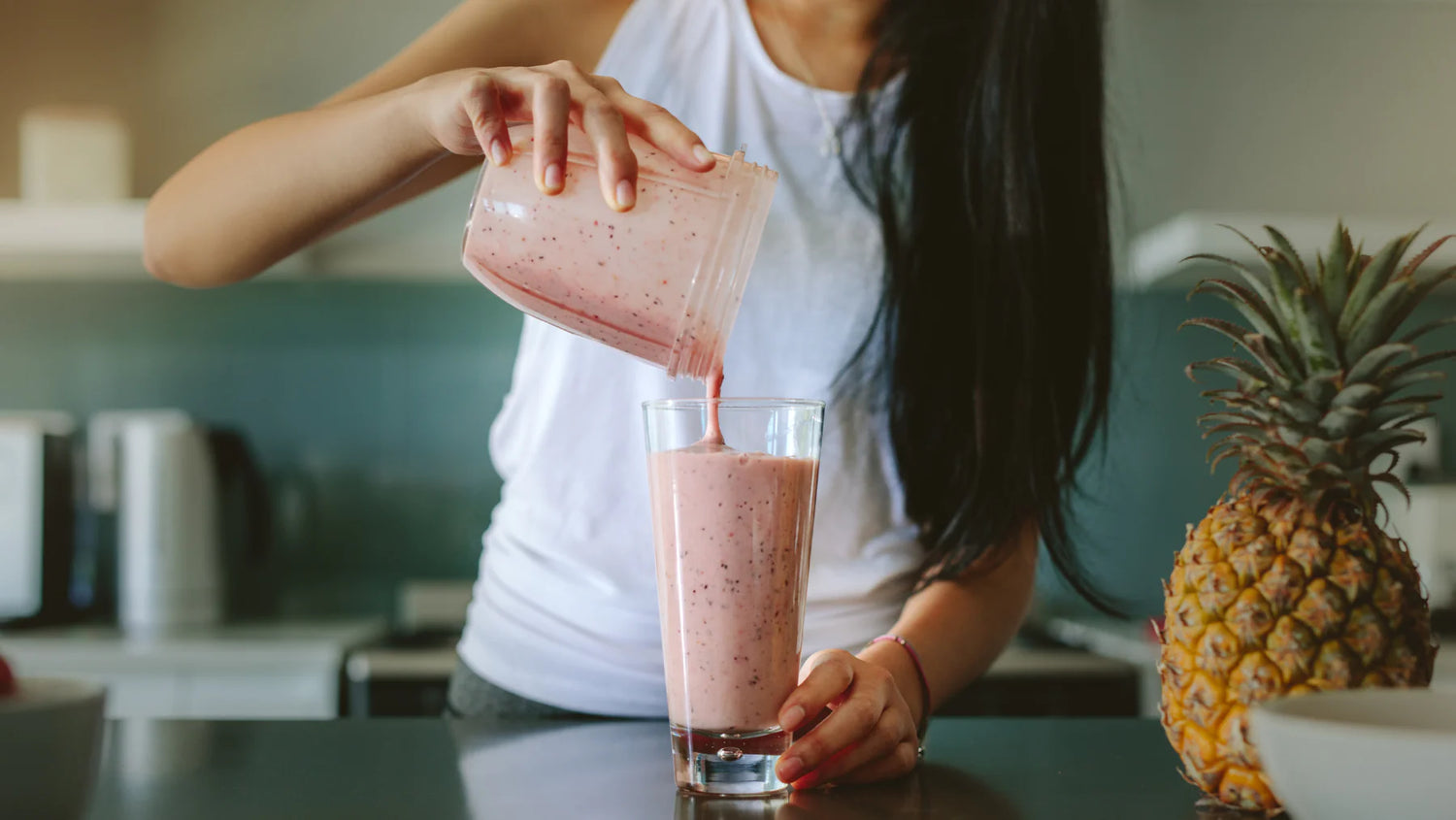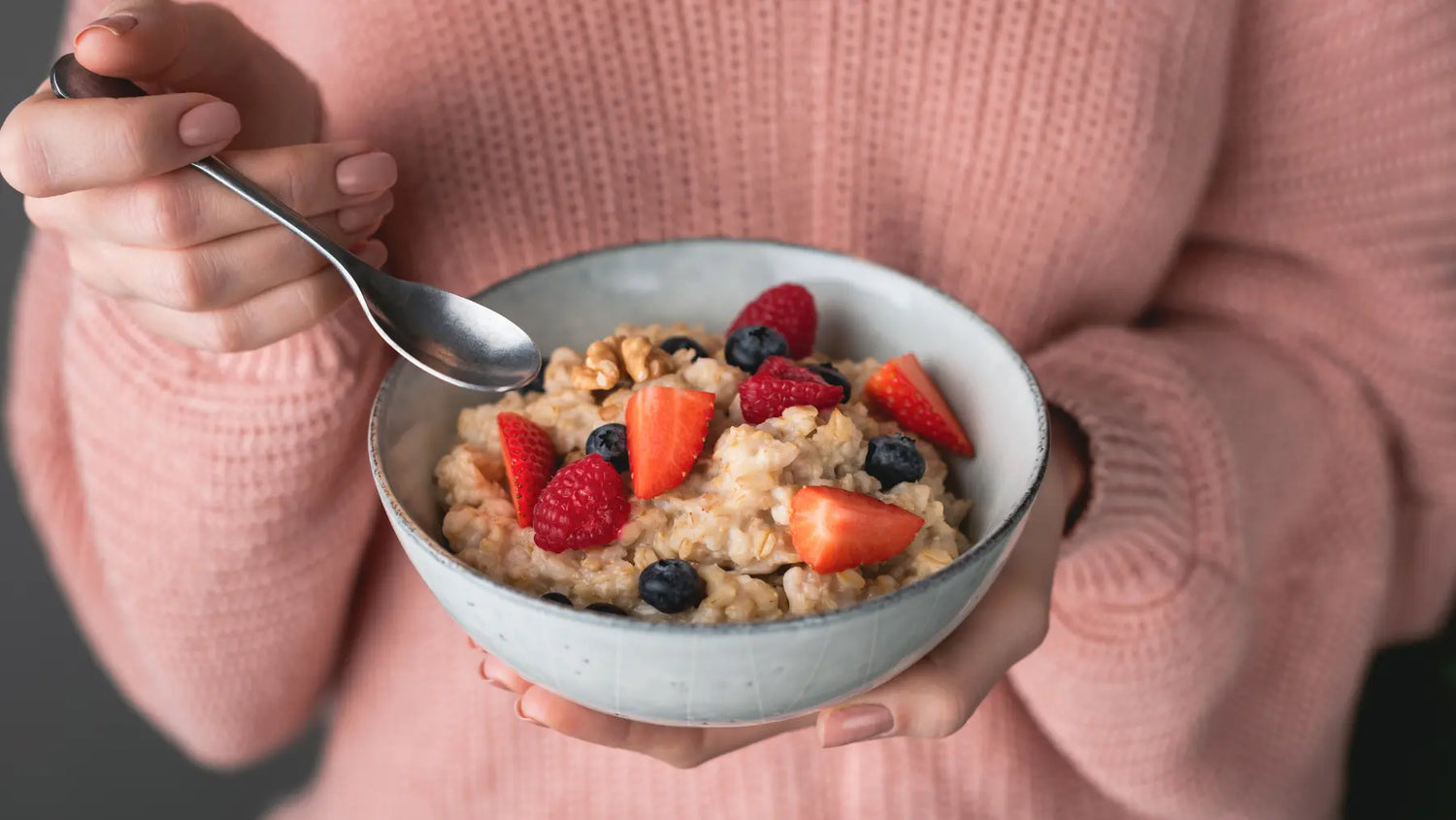Looking to add some pizzazz to your smoothie game? We've got the scoop on the best liquids to rev up your blender and elevate your sipping experience. From nutrient-rich milk alternatives to the zesty burst of fruit juices, the options are endless.
While milk and its alternatives amp up the nutrient intake without overpowering the smoothie's flavor, some juices, like apple and orange, can sweeten the deal but come with a sugar caution. Strike the perfect balance by experimenting with different ratios of water and your chosen liquid for that impeccable smoothie symphony.
There's no one-size-fits-all answer here - it all boils down to your unique nutritional goals and flavor preferences. Dive into our comprehensive guide, packed with research and firsthand tests, to find your ultimate liquid companion for a lip-smacking smoothie experience.
Ready to embark on a flavor-packed journey? Pair your newfound favorite blending liquid with our delectable Frozen Garden smoothies for an unbeatable fusion of health and taste!
If you're looking to add more flavor and nutrition to your smoothies, you may be wondering what liquids you can use instead of water. While water is a great go-to for almost any smoothie, there are some other blending liquids for smoothies that can enhance flavor and nutrition. So what liquids can provide such benefits?
Our research and development team got to work this month to research and test which liquid for smoothies would be most beneficial. We tested our smoothies with various liquids and got our team’s feedback on taste and texture. From that feedback and our research on the nutritional content and benefits of certain liquids, we've compiled a guide to finding the best liquid for smoothies. In this guide, we'll explore the benefits and drawbacks of those liquids in hopes that you will be able to determine which liquid will work best for you and your favorite smoothie.
WATER FOR SMOOTHIES

If you're looking to cut calories and sugar from your diet, water is the perfect choice for liquid for smoothies. Not only is it calorie-free and sugar-free, but it's also money-free! Water is the ideal choice if you're trying to lose weight, as drinking water helps you burn calories and stay hydrated.
Did you know that Frozen Garden develops every smoothie recipe based on it being blended with water? Since water doesn't add any flavor, it's the perfect way to ensure the combination of flavors within the smoothie is perfect. You can never go wrong with nature's best liquid for smoothies!
MILK & MILK ALTERNATIVES FOR SMOOTHIES

Aside from water, most people’s go-to liquid for smoothies is a milk or milk alternative, so we made sure to focus a lot of our testing and research on the various types of milk available to consumers.
COW'S MILK FOR SMOOTHIES
We all know that dairy is a recommended key ingredient in maintaining a healthy diet. It supplies a plethora of health benefits and provides your body with many different nutrients like calcium, potassium, and vitamin D to name a few. Calcium and vitamin D aid in bone and teeth health while potassium can help maintain a healthy blood pressure. Milk can also increase your protein intake as there are two high-quality proteins found in cow's milk, casein and whey protein.
If you’re looking for ways to sustain healthy bones and blood pressure, adding cow's milk to your smoothie may be a good way to include it in your diet. Using this milk as a water substitute in your smoothie can also help you feel fuller longer due to the protein content, which can be super beneficial if you’re looking to use a smoothie as a meal replacement.
We recommend using milk in smoothies that contain nuts, oats, or cacao as it will compliment these flavors best; however, something we found in our testing is that milk will dilute the overall flavor of your smoothie. Milk will also give your smoothie an extra thick consistency; whether that’s a benefit or drawback, we’ll let you decide!
ALMOND MILK FOR SMOOTHIES
If you’re unable to consume cow's milk for any reason, there are plenty of milk alternatives available with comparable benefits, one of which being almond milk. Similarly to cow's milk, almond milk has naturally high concentrations of various vitamins and minerals, including calcium and potassium. It’s a great low-fat option, and unsweetened versions contain zero saturated fats.
Almond milk doesn’t contain cholesterol making it a heart-healthy option, and unsweetened almond milk is very low in carbohydrates so it’s keto-friendly too! Unlike cow's milk, almond milk is a great option for those adhering to a dairy-free diet since it doesn’t contain animal products; however, since it does contain almonds, it is not safe for those with a nut allergy.
All things considered, almond milk could make a great liquid base for pretty much any smoothie; however, if you’re opting to use sweetened vanilla almond milk, we don’t recommend mixing it with smoothies that contain mint (the flavors don’t compliment each other very well). For smoothies mixed with sweetened vanilla almond milk, we found that the sweetness was definitely tasty, but it overpowered the flavor of the smoothie. If you’re looking to use this type of milk alternative in your smoothie, we recommend using half water and half sweetened vanilla almond milk. Unsweetened almond milk doesn’t drastically alter the flavor and, even though it’s unsweetened, it still adds a bit of sweetness to the smoothies it’s in!
OAT MILK FOR SMOOTHIES
Another alternative to cow's milk, oat milk is an ideal option for those who are dairy-free, and it’s safe for those with nut allergies! Oat milk is almost double the calories of most almond milk, but it’s a really good source of iron for those who don’t get iron from other food sources. According to Rachel Link at draxe.com, one cup of oat milk contains about 10% of the iron needed in a day. Meaning, oat milk can actually aid in the prevention of anemia, especially in individuals with a vegan or vegetarian diet.
Unlike dairy or almond milk, oat milk doesn’t naturally contain calcium or vitamin D. Most commercial oat milk, however, are enriched with these micronutrients, so this milk alternative is still a great source of vitamins and minerals. In addition to being a source of iron, calcium, and vitamin D, oat milk contains a soluble fiber known as beta-glucan which can aid in lowering cholesterol!
Oat milk is a more flavorful milk alternative which will be apparent in any smoothie you add it to, so we recommend using oat milk in smoothies that contain oats or chocolate. Oat milk is high in carbs, so it likely won’t be beneficial if added to keto smoothies; however, it could increase your feeling of fullness even further when added to a protein smoothie. Similar to sweetened vanilla almond milk, we recommend using some ratio of water and oat milk for most smoothies so that you can still taste the delicious flavors of whole fruits, veggies, seeds, and spices!
SOY MILK FOR SMOOTHIES
Soy milk is a great alternative to dairy, nut, and oat milk for those who may be allergic to nuts, are lactose intolerant, or just don’t like the flavor in general. Similar to the previous milk discussed, soy milk, if fortified, can provide you with calcium and vitamin D.
For plant-based diets, soy milk is the closest you’ll get to cow's milk in terms of protein. It matches dairy milk’s protein content which can help you feel fuller longer. In addition, soy milk is another milk option for those who are trying to remain cognizant of their heart health as it naturally contains zero cholesterol.
In terms of flavor, we found soy milk to have similar results to cow’s milk. Overall, it dulled the flavor of the smoothie. Soy milk could likely go in almost any smoothie without having to worry about flavors being overpowered, but the flavors will definitely be less full. Another similarity to cow’s milk, that blending a smoothie with soy milk will make it incredibly thick!
JUICES FOR SMOOTHIES


When looking for a new liquid for your smoothies, your options aren’t limited to milk and milk alternatives! We decided to think outside of the box and try some juices that would compliment the flavors of some smoothies.
APPLE JUICE FOR SMOOTHIES
An apple a day keeps the doctor away, but does that transfer to apple juice too? In short, not really. You don’t get the same nutritional benefits from apple juice that you would get if you were to eat a whole apple. That’s not to say, however, that apple juice doesn’t have any nutritional properties that could be beneficial when added to smoothies.
The majority of apple juice is water, which means it supports hydration while having great flavor. Another benefit to apple juice is it contains a plant compound known as polyphenols. Polyphenols are mostly found in the peel of an apple (though some do still remain in the juice) and it is known to protect cells from inflammation and oxidative damage that can increase risk for disease. Apple juice with pulp (or cloudy apple juice) is likely to reserve more of those plant compound properties, but you will still get some from regular, clear apple juice. Apple juice has also been shown to support brain function as you age!
We found that this juice really sweetened the smoothie without overpowering the flavor of it; however, due to the high sugar content, it might be best to use some ratio of water and apple juice or use it in a smoothie that has a naturally low sugar content. Since the flavor of the apple juice doesn’t tremendously overpower any flavors of the smoothie, we think it will work in any smoothie of your choosing!
ORANGE JUICE FOR SMOOTHIES
Orange juice is another beverage that has nutritional benefits and could be beneficial if added to your favorite smoothie. It is packed with Vitamin C which can support your immune system, in turn fighting and preventing the common cold and other illnesses. According to Nourish by WebMD, orange juice contains a nutrient known as potassium citrate. This potassium salt is used to treat and prevent kidney stones.
Like apple juice, and most other juices for that matter, orange juice has a high sugar content, so it’s important to be careful of how much you might use in your smoothie. If you want to get the extra nutrients from your orange juice, try looking for a fortified version that contains extra calcium and added Vitamin D. Also, orange juice with pulp contains more healthy fiber than orange juice without pulp, and, since you’ll be blending it up anyway, you won’t have to worry about the pulpy texture!
Orange juice adds a nice sweetness to smoothies, but it will alter the flavor. We found it tasted best in smoothies that already contained citrus fruit or even smoothies that contained apples. This is another liquid we recommend using some ratio of water and orange juice. Using all orange juice might make a smoothie overly sweet tasting and the sugar content will likely be astronomical.
EXPERIMENTAL LIQUIDS FOR SMOOTHIES
While we mainly wanted to test liquids that would have the best nutritional and flavorful impacts and improvements on smoothies, we thought it could be interesting to use some more experimental liquids in our testing. We tried using lemonade, tea, and even kombucha! Each of these liquids was used in a smoothie which we felt would complement the flavor, and the results ended up being pretty tasty! We used lemon and ginger kombucha in our Immunity Smoothie and found that the flavors went beautifully together. The kombucha wasn’t overpowering and it complimented Immunity quite well.
We really recommend getting experimental with liquids for smoothies. While the liquids we discussed in this blog have some of the better nutritional benefits, there may be some other liquids out there that will have the best flavorful impact on your smoothie. And remember, experimenting is all about trial and error, so, if you're testing out different liquids for smoothies, you may need to try more than one liquid in more than one smoothie to find which you like best!



